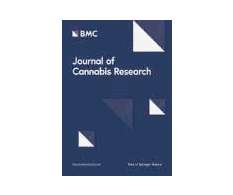Report: “Key pharmacological differences between side effects of refined, pharmaceutical CBD formulations and whole plant extracts:”
Cannabis Law Report
JULY 12, 2019
International Cannabinoid Cancer Research Institute (Draft 5). This paper seeks to answer why refined cannabinoids have more side effects than the natural cannabis product, as well as the possible etiology of said adverse reactions. Also discussed are other attempts at affecting the cannabinoid system from a singular standpoint.












Let's personalize your content